Tokyo Olympics conundrum: With 5 months to go Japanese hockey coach Siegfried Aikman talks about the latest situation in Japan | Tokyo Olympics News – Times of India
In the world of sports, that hope revolves around the Tokyo Olympics. Postponed last year, the Games were rescheduled for July 23 to August 8 this year, followed by the Paralympics.
The International Olympic Committee [IOC] might insist that the Games will go ahead., but while the Covid curve seems to be dipping and various vaccines are out, the situation remains fluid and hosts Japan are in a state of emergency till at least March 7, as of now.
To gauge the ground situation in Japan and feel the local pulse, Timesofindia.com got in touch with the coach of the Japanese men’s hockey team, Siegfried Aikman. Hailing from the Netherlands, Aikman currently resides in the Gifu prefecture of Japan and shared his thoughts on the current situation related to the Olympics.
You have been in Japan for a long time. Are you missing Holland?
I haven’t been there for a year. I only went there for the Christmas holidays. I had to rush back to Japan because the border was closing, and I had to be here for my job because the Olympics are, of course, the most important thing in my life at the moment.
That’s what brings us to you because you are right there preparing for it, but there’s a lot of speculation going around as well related to whether the Olympics will happen or not. What’s the latest ground situation?
(Photo credit: Facebook)
Well, the latest is that we are convinced that it will go on. I know there’s a lot of fuss around, and the latest is, of course, that [Yoshiro] Mori resigned after making those [sexist] remarks, which he should not have done. But he finally resigned, and I think it’s a good thing for the Olympics and for the values that we all have. It shows that the world is changing.
Japan is in a state of emergency till March 7. What exactly does that mean?
Yes, it’s correct. I think we will stay in a state of emergency until we really manage the Covid. But the number of Covid-infected people is very low currently in Japan. If you consider that we have over 128 million people living here, then we hardly have Covid. But that doesn’t mean you should not be careful.
I think that we should do everything in Japan to reduce the amount of Covid-infected people. The thing is that if we can do so, then when summer arrives and the virus is weak, that means the people will not be very sick if they get infected at that time because the virus is not so strong.
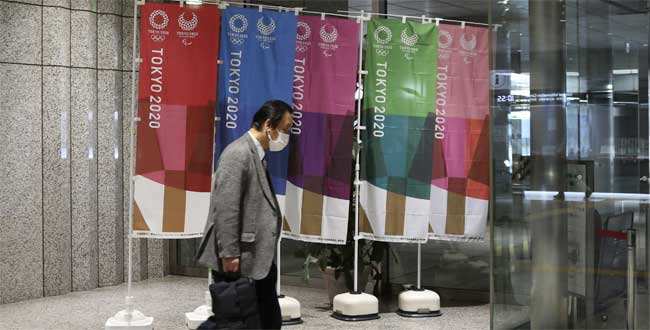
(AP photo)
Last summer, here in the place where I live [Kakamigahara], we didn’t have Covid at all, but still there was Covid in Japan. Here in the Gifu prefecture, we have less than 50 new cases a day and Gifu is a big prefecture. So the amount of infected people is not that high.
You said that the number of Covid cases is not very high, so why is Japan then in a state of emergency? Is it a precautionary measure because of the Olympics?
The state of emergency basically means that we don’t travel much, that we don’t indulge in nightlife. Because how Covid spreads is mainly because of badly-ventilated places, especially when people use some alcohol, so it was mainly in nightlife in Tokyo and other places.
Here in Japan, everybody wears a mask, everybody keeps social distance and they wash their hands. Public places like restaurants and bars are asked to close at 8 o’clock in the evening. The state of emergency sounds very hard but it’s [actually) a very soft one because according to the laws in Japan, nobody can be punished for not following it.
If you look at it, everybody is conscious about Covid. Japanese people are very obedient, and Japan is a very clean and civilized country. So it makes it easier to keep doing what you’re doing. Because of that, the spread is not so huge.
We however keep hearing in the news every now and then about public surveys indicating that the majority of Japan residents are against the Olympics taking place. In fact, the numbers of such people were as high as 80% in some of the surveys. You must have also interacted with the locals over there. What’s the general feeling?
It’s very hard for me to find out because people know that I’m involved in the Olympics, and everybody wants us to be at the Olympics. So when people talk to me, sometimes they say maybe it should not go on, but we want you to be at the Olympics and we want you to do well at the Olympics. So it’s a double standard.
Of course, people are worried, people are very worried about the Covid, especially when the cases were rising a lot. But at the moment, it’s decreasing again because of the state of emergency, it works well. There was quite a big discussion if they would keep the state of emergency, and they decided to do so. But actually the numbers are going down at the moment.
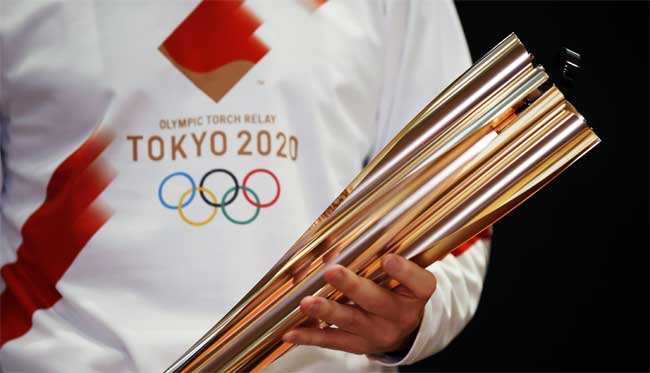
(AP photo)
In Tokyo, they have less than 500 new cases a day at the moment. That’s quite few for a big city. If you look at those numbers, it’s about nothing. But because it’s infectious, you need to be careful. I think we are taking all the precautions, and they will create a bubble, create a situation in which it (Olympics) will be safe.
The question is if spectators should be allowed to come in and if they allow that, then how many? Whether it should be crowded in the stands or not? But to do so, Japan is never going to go for those kinds of things unprepared. Actually from next month, they will do some more testing and they are already doing this, allowing more and more audiences to watch sports events to see how it works.
An international gymnastics event also happened sometime back…
Yes, and that went very well. So the things they put in place [Japan government] do seem to work; and if the virus goes down and the strength of the virus gets weaker, like it does in summer, then it might be okay.
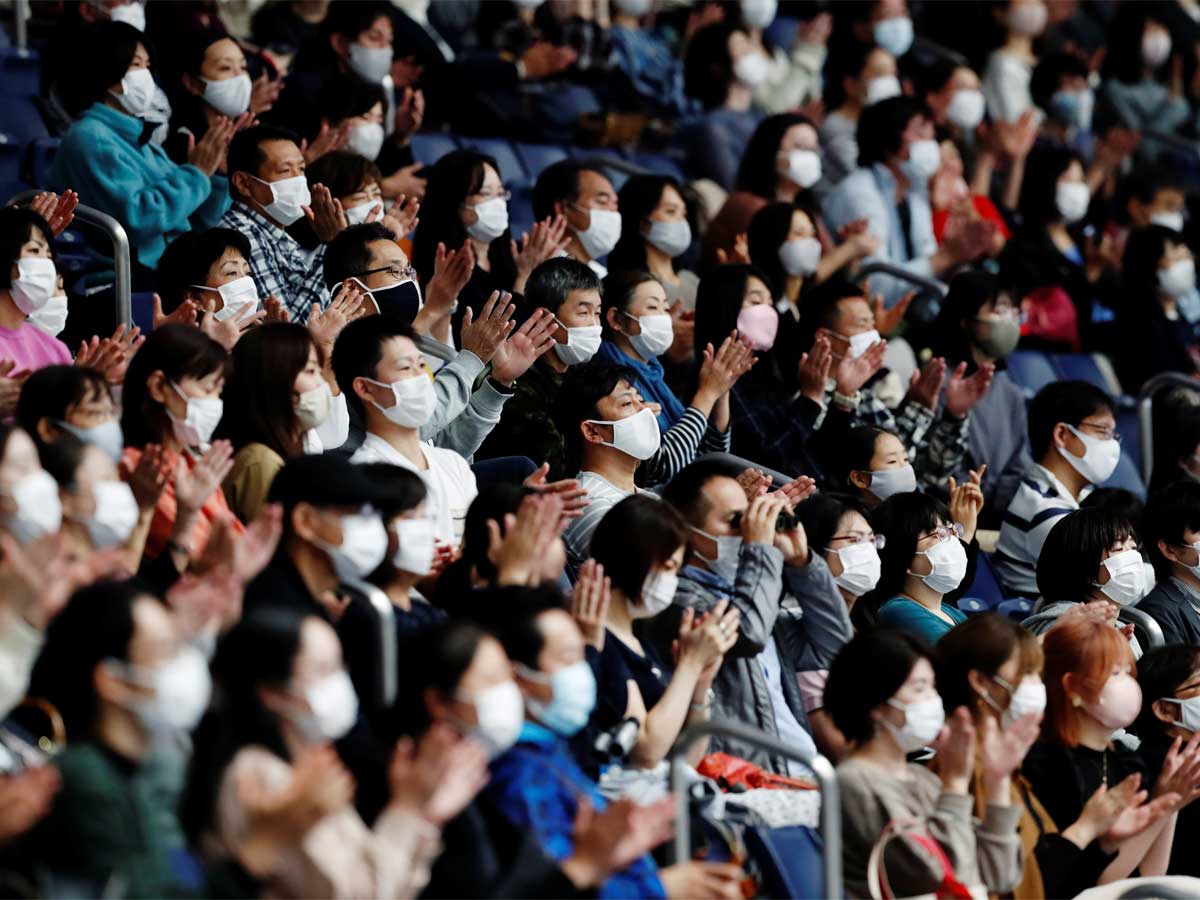
(Reuters photo)
The IOC and JOC [Japanese Olympic Committee] have already decided that to come to the Olympics, you don’t need to be vaccinated but they will test you and make sure that you can’t spread the virus. So they will create a bubble. So I think it will be on.
The government continuously says it will go on. But again, people are worried and I can understand that. It’s, of course, something to be worried about. But it’s not that people are against it, though people have their second thoughts about the Olympics. If the number of cases increases, then people will be against (the Games).
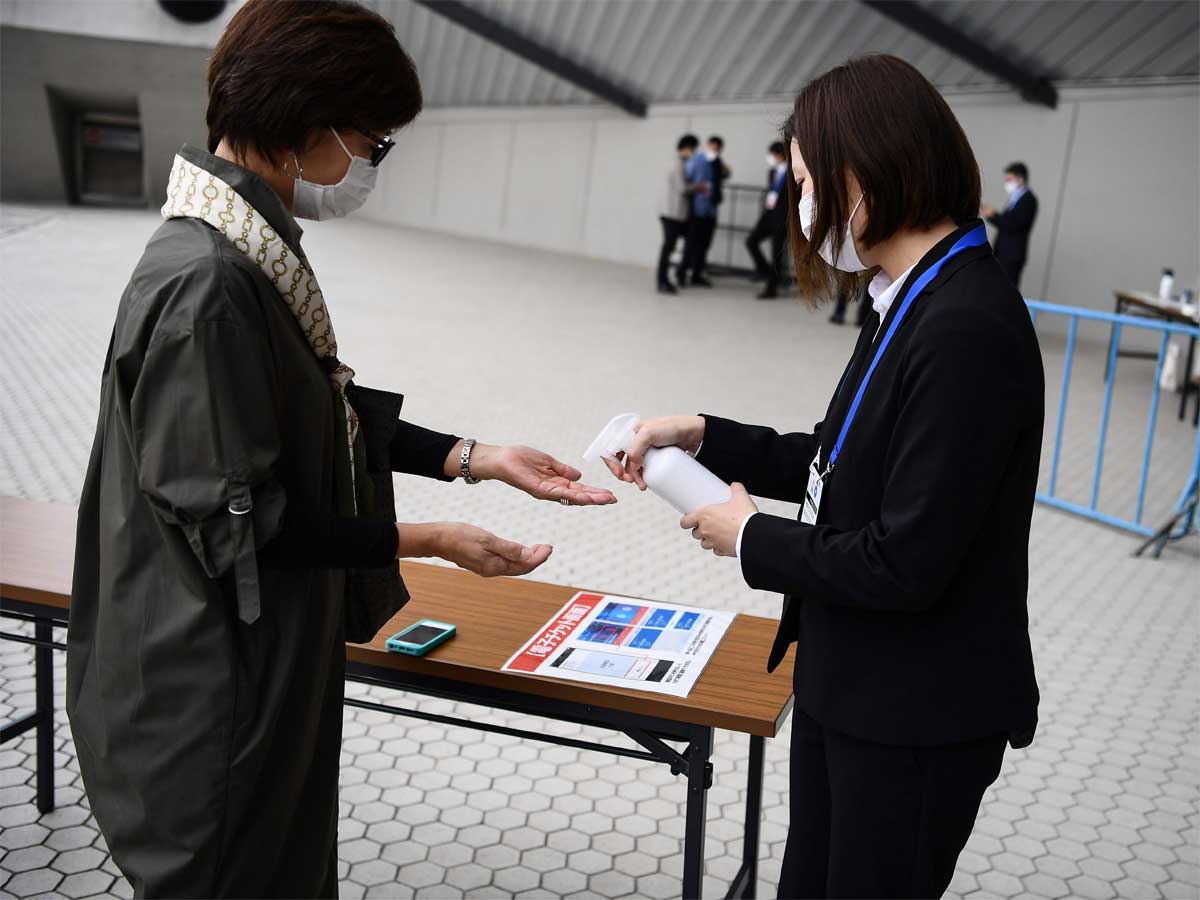
(AFP photo)
So the time when they did those surveys with the public, that was when Covid was on the highest level in Japan. We had over a thousand cases in Tokyo a day, and the cases were going up. As the state of emergency has worked, it eases people also.
Talking about the JOC and the IOC, do you believe they will assess the situation maybe by the end of March or April and then take a final call?
Well, I think it will go on, but not irrespective of whatever happens. It’s actually the same as the case of Mori, the former president of the organizing committee. He didn’t want to resign. He said he will stay whatever happens, but he had to resign.
So if the public opinion will be very strongly against it, then it will not be held. But I think that many Japanese want to watch the matches, they want the Olympics; but at the same time they are afraid. So if the numbers will go down, the risk will be managed better and they will have the confidence.
I think it will be on and that’s also what the government’s policy is; they want to make it happen. So they will do everything to take care of the health conditions, etc. But having said that, you never know. People are afraid, and if people are afraid, they might be protesting but at this moment there are no big protests.
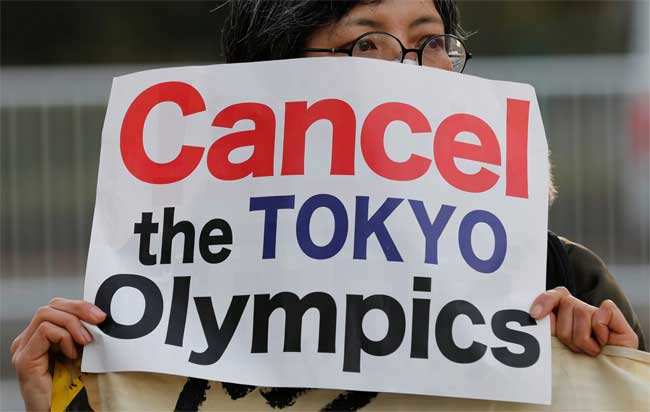
(Reuters photo)
What’s your personal opinion on this?
The confirmation is already there. IOC president, Thomas Bach, has already said that it will go on. It is only when things get extreme that it will not go on, but then it will be cancelled. There is no time for another delay. That’s what he said.
I think that is a firm statement he made in December. After that, the number increased a lot. But still, they never said that they are reviewing. They had said ‘we have to check, we have to look how we can deal with it, how we can make it happen.’
I like that approach, it’s a pragmatic one, looking at what you can do to make it happen. If that’s the attitude, I think you will find ways to make it happen. If the attitude is one of panic and that we should not let it happen, then we will stop thinking and exploring.
Many thought that a vaccine is impossible, and normally it takes 10 years to get a good vaccine, but when all efforts combined, you could do it faster…Normally there is not such coordination and cooperation and a lot of money involved. Now it happened, and they could do it in a year.
This is also one of my values in life. I believe that if you want something to happen, you will do everything to make it happen and at the end it might happen. But the same is also true for things you’re worried for and worried so much that it paralyzes you. You will see that it will happen too, but then that is a negative outcome.
The vaccine also plays a very important role in decision-making. What’s the status of the vaccination drive in Japan? Have the Olympic athletes already been vaccinated?
Nobody is vaccinated yet. I think they will start vaccinating in March, or maybe the end of February. But many people don’t like vaccines. So it will be a challenge. But if you look at how we are dealing with it now and how we are able to limit the spread of Covid all over the country, I think it’s a guarantee that people will continue to be careful.
Will the athletes be allowed to choose whether they want to get vaccinated or not?
Yes, that’s already announced. Athletes don’t have to be vaccinated. They will have to prove that they don’t have Covid when they enter Japan and there’s a whole protocol issued already about that. So five days before the Olympics will start, the emergency protocol about the health conditions will start. That means before you come in, you have to be tested. When you come in, you will be tested. If it’s not negative, you have to go directly into quarantine and then you will be tested again in three days or so.
You will only enter the country if you are absolutely negative…But in this case (of Olympic athletes), you will go into the Olympic bubble.
If we talk about hockey in particular now, because you’re responsible for that, how well placed is the Japanese team at the moment in terms of practice and everything else?
We really don’t know. We practice, but we have no assessments because we cannot play matches. We have no international matches. Like India, for instance, they will have the Pro League matches; likewise, Holland, Belgium, Spain, Germany, Great Britain played many Pro League matches. So they can assess each other.
You need competition to grow. So we can practice a lot, but we never know if it’s enough. We never know if our intensity is good because we lack all assessment.
There’s no way for us [Japan] to play international matches because we cannot travel. If we go to another country, we will have to go into quarantine for two weeks, then we come back and another two weeks. So you are one month out of practice, that’s too long. So we do the best we can based on science, but we never know.
Good morning from a beautiful sunny and comfortable Kakamigahara where Samurai Japan are enjoying practicing in the… https://t.co/hZhJdR4Iq3
— siegfried Aikman (@SiggyAikman) 1612230279000
High-performance sports is about getting access to that 10% extra. You only get that in competition. So when we play friendlies among us, we will never get what we get in a real match. You need those match assessments to know if you are ready to perform on a stage as big as the Olympics. The countries who are in the Pro League have those opportunities. That’s a huge difference.
Lastly, since most of the hockey nations haven’t played at all, or played very little, in the run-up to the Olympics, do you think there will be surprises at the Games in terms of the competition becoming more open and then the eventual medal winners?
I think things will change. One of the huge changes will be that all the teams will be fresh. Normally many teams are exhausted when the Olympics start. Also, I think, this time the coaches have had a lot of time to study, to gain new knowledge, to be in contact with coaches from other sports and had an intensive online communication system. So I think coaches will add many new things to hockey.
I think that this will be a very interesting competition. A lot of teams have the potential in men’s hockey. I think eight teams have the ability to go for the gold medal. It depends on your performance of the day. It will depend on how you start. We will have to play five matches in seven days. So physical fitness will be very, very important. And not only fitness, but also recovery.
As I said, eight teams have the potential to win at the Olympics, but we will try to stretch that to at least one more, because we want to be included as well. That’s our ambition.


